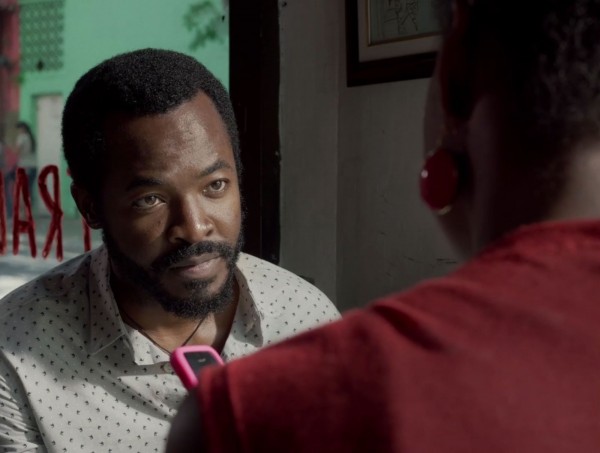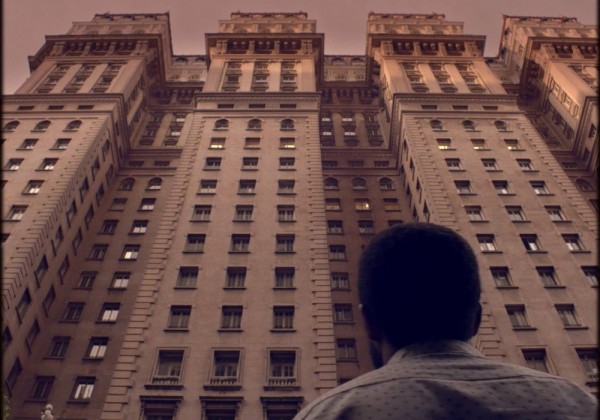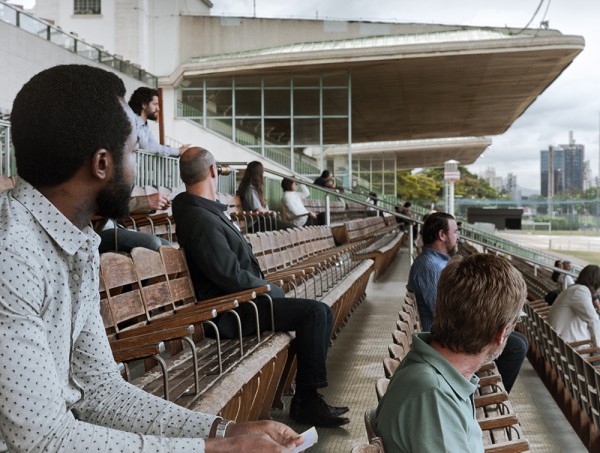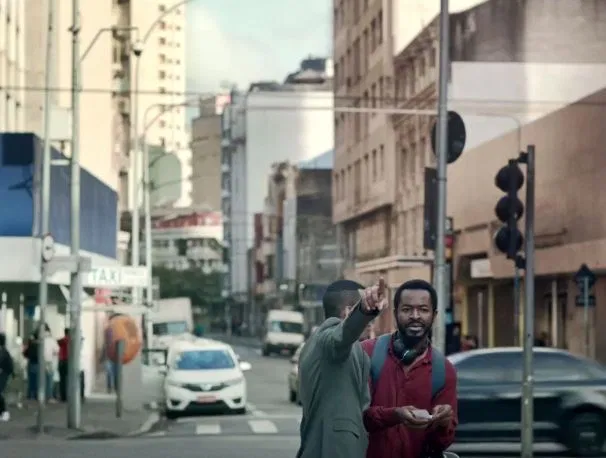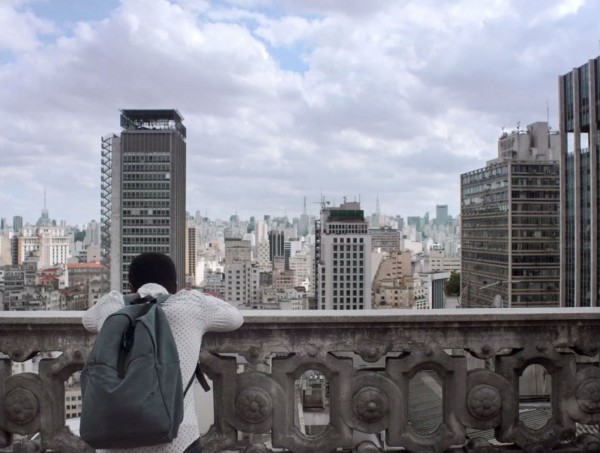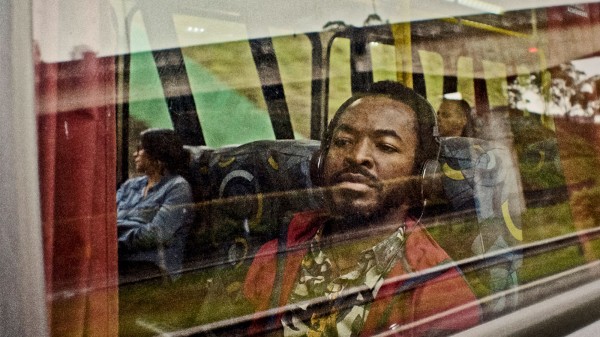 OC OKEGE IN SHINE YOUR EYESFar from home
OC OKEGE IN SHINE YOUR EYESFar from homeComing to Netflix July 29, 2020, Brazilian documentary filmmaker and prolific producer Matias Mariani's debut feature is about Nigerian Igbo people from southern Nigeria in the city of São Paolo - a man comes there from Lagos in search of his older brother, who has not been heard from by the family for a while, and meanders through this city, gorgeously photographed in an original style. It's a is a lovely, mysterious film which keeps one watching with a sense of expectation and freshness. But it has flaws, and at the end doesn't quite live up to to the expectations of its initial mystery or the hints of its lovely images and the heady mix of sound and image Brazil offers the filmmaker.
I have it from Kaleem Aftab, who
reviewed this film at its Berlinale debut, that the Iglo people have been "some of the most influential settlers in Brazil" and have had a "strong influence in socio-political and cultural circles" there. Perhaps there are hints of this in the movie that the novice doesn't perceive. But this is a picture of a strange person in a strange land exploring a mystery. Amadi (OC Ukeje), the protagonist, is in every scene, even some precursor ones at the outset when he is seen as a boy with his now missing older brother Ikenna (Chukwudi Iwuji). Amadi speaks Igbo, and we hear a lot of it. He is fluent also in English, but not everybody in Sao Paolo, is including Ikenna, aka Charlie's, Brazilian girlfriend Emilia (Indira Nascimento), speaks English. She says she liked hearing Ikenna speak Igbo, without understanding. Perhaps Amadi likes hearing Portuguese, without understanding. But midway he tells someone, he is learning it, "Estou aprendendo."
First thing, Ikenna goes looking for a technological institute where Ikenna taught. Philosophy? Mathematics? But there was no such school. Ikenna was a fraud. He sounds like some kind of hokey genius, full of obsessive, borderline nutty mathematical theories to help one succeed at gambling, and later to save the whole country of Brazil, he has claimed. Akeem Aftab points out the way Amadi finds Ikenna's abandoned laptop in a shop is a coincidence even Dickins (an odd thought, for something so modern) would choke on. In fact Chika Amadu's imaginative screenplay is paved with implausiblities. (There are half a dozen other writers, never a good sign.) Amadi goes to a race track to find traces of his betting brother and by accident, through a confusion of "seen" and "cinco," winds up buying a ticket on a long shot called Schopenhauer, as if on a tip arrived at through Ikenna's system and he wins - although, in violation of the basics of horse races in movies, we don't see him collect his win.
While he's watching the race, Amaadi talks to a man nearby who turns out to be a professor of Ikenna's and a mentor and friend, who lives with his father, who, in old age, has forgotten all but his native Hungarian. At one point, at dusk, on a balcony, we encounter a big black man whose face is all covered with a birthmark - or is it a shadow? It's a memorable image. All these things are cool, as gestures, and fun to think about. They don't build a tight plot structure.
Eventually Amadi gets involved with Ikenna's girlfriend Emilia, who likes to hear
him monologuing in Igbo too. Through the laptop, he foillows a number of threads, and even begins tracing his brother's cell phone locations. Amadi is a musician, so we're told. At one point he plays in a little pickup group, and it's a nice moment; but the "jazzy score" Aftab admires isn't what this movie is about, and leaves little impression compared to so many music-soaked Brazilian films. The sense is that this whole venture is above all a late-arrival coming of age for Amadi, an emancipation from his brother, his homeland, and his family.
All this seems in the end very fanciful and lacks places to gain foothold. But what works is the city, selfconsciously intended to be one of the main characters, and the cinematography, which seems perfectly suited to accommodate it. The film is presented in 4:3 screen format, with colors pale yet deeply saturated. It was the splendid dp Leonardo Bittencourt who advocated for the format, and he has made it all work for his images of the grand but sometimes rusted, rotting-looking concrete buildings of f São Paulo and its crisscossing streets and alleyways and commercial interiors and many-shaded people in ways wonderful to behold.
There are not many mainstream reviews of
Shine Your Eyes, and at Berlin it [url="https://cannes-ratings.herokuapp.com/Berlinale"]ranked 55th[/url] in the critics ratings. Nonetheless if you have a Netflix subscription and a taste for exotic mysteries and beautiful urban images, this could be worth your time.
Cidade Pássaro/Shine Your Eyes, 102 mins., in Portuguese, English, and Igbo, debuted in the Panorama section at the Berlinale Feb. 21, 2020. Its online-only debut is set for Singapore July 29, 2020, Netflix in the US ditto.
